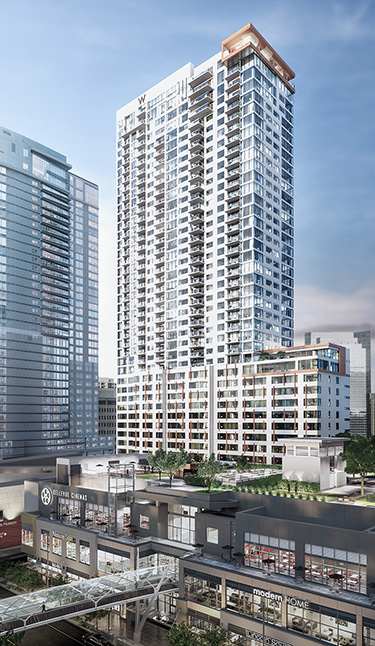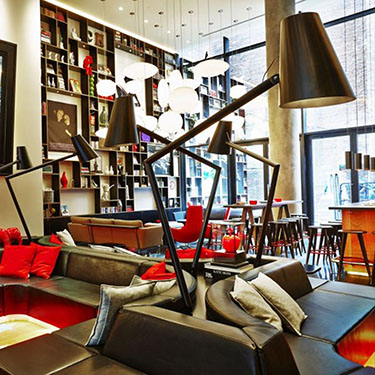|
Subscribe / Renew |
|
|
Contact Us |
|
| ► Subscribe to our Free Weekly Newsletter | |
| home | Welcome, sign in or click here to subscribe. | login |
Real Estate
| |
March 29, 2016
Hotel industry is scrambling to satisfy new customer demands
Journal Staff Reporter
The hotel industry is in a time of turmoil — though some experts say that's always been true and hoteliers must be adept at responding to change.
The latest challenges include new technology and new types of customers who want different things, according to a panel of hotel experts at a Bisnow event last week. Hotels are responding by adding new brands, localizing their properties, and making it easier for guests to do things like check in and unlock their room using a smartphone.
To some experts, the biggest push for change in the industry is coming from younger guests. These travelers want hotels to reflect the city they are visiting. They don't want to feel isolated from the city, panelists said, they want to be a part of it. Hotel companies are taking notice.
“A hotel is no longer thought of as a standalone entity that's providing everything; it's really your gateway to that locale,” said Tom Sprinkle of Dallas-based HKS Architects, which is working on several big projects here: Kemper Development's Lincoln Square expansion and Schnitzer West's Seattle office tower Madison Centre.
Hotels are trying to create a more local experience by having many brands that can appeal to different types of customers. The experts said hotel ownership is consolidating — especially if the possible merger between Marriott and Starwood Hotels & Resorts goes through — but the number of brands is multiplying. Some of them will be gone in a year, and some will stick around, said Ron Mitchell of MG2, who has designed hotels for more than 30 years in 28 countries.
Younger people and technology are driving hotel design. In some new hotels, guests can open the door with their phone. When they get inside they won't find things like a TV remote, thermostat or shade control: All of that is managed on the phone.
Rooms are getting smaller, Sprinkle said, because travelers today place more value on common areas like bars and lobbies. People may be staring at their laptops and cell phones, but they want to “be alone together” in common spaces, said Alif Nurani of Lynnwood-based 360 Hotel Group, which has hotels in Lynnwood, Everett and Bellingham.
Not everyone agreed with some of these trends and their causes. Yogi Hutsen of Coastal Hotels in Bellevue has worked on a variety of hotels including Cedarbrook Lodge in SeaTac, Semiahmoo Resort in Blaine and a high-rise hotel under construction near Southcenter in Tukwila. Hardwood floors instead of carpet, for example, make a room seem cleaner, but Hutsen said that can create problems with noise and maintenance. Hutsen said it gets expensive trying to keep up with trends that later fade.
Hutsen was skeptical that there is such a generational divide, saying older people also have smartphones and like to hang out at Starbucks. There are some things that everyone wants in a hotel: a nice place to sleep, shower and work.
“I think that what one generation likes, generally most generations like,” Hutsen said.
But some trends, like sustainability, are here to stay, he said. At Semiahmoo, the team paid a premium to buy carpets made of reused fishing line from the Philippines, he said. He advocates for farm-to-table food choices and tracking where hotels get the products they use.
Gregory Steinhauer is with American Life Inc., which is building the 23-story Embassy Suites as part of Stadium Place near CenturyLink Field. It is one of the most visible hotel projects in Seattle. The firm also worked on a hotel in L.A. Live, a complex near Staples Center in Los Angeles.
Steinhauer said trends don't determine where someone is going to stay. That comes down to real estate's oldest maxim: location, location, location. “At the end of the day, you still have to have the right location,” Steinhauer said. “It all starts there in a market where you think you can drive business, and that's followed up by all these other things we are discussing.”




